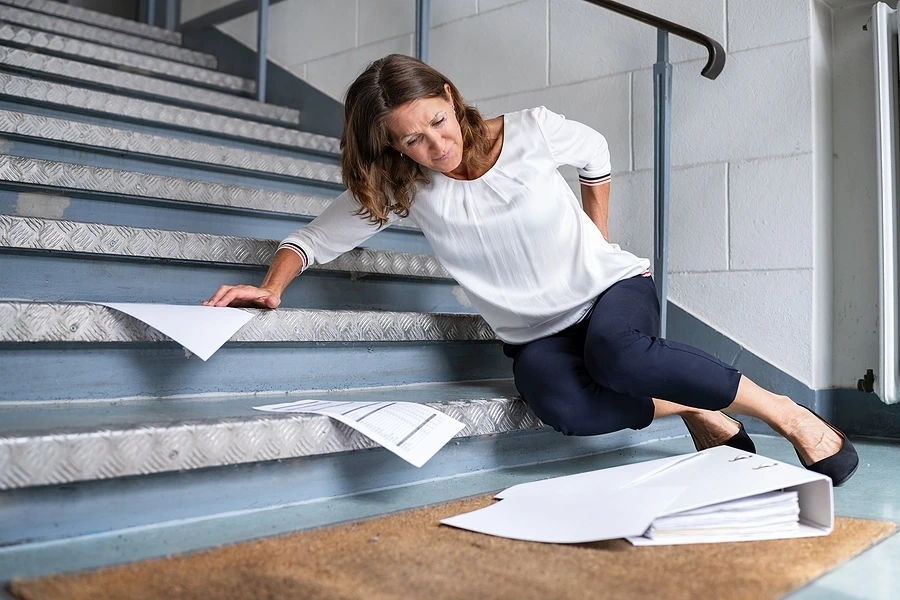What Types of Injuries Are Covered Under Premises Liability?

Premises liability law exists to protect individuals from harm caused by unsafe conditions on someone else’s property. Property owners have a legal duty to maintain safe environments, and when they fail to meet this obligation, injured parties may have the right to pursue compensation. In Alabama, as in other states, premises liability claims can cover a wide range of accidents and injuries. Understanding what types of injuries are covered can help individuals determine whether they have a valid case and what steps to take next.
The Basis of Premises Liability
Premises liability claims are founded on the principle that property owners must exercise reasonable care to prevent injuries. This duty varies depending on the status of the person on the property. For instance, owners owe the highest duty to invitees, such as customers in a store, and a lesser duty to licensees or trespassers, though some protection still applies.
In Alabama, property owners can be held liable if they knew or should have known about a dangerous condition and failed to take reasonable steps to address it. Liability is not limited to intentional acts; negligence in maintaining the property can also lead to a claim.
Common Injuries in Premises Liability Cases
Premises liability claims can involve a variety of injuries, ranging from minor cuts and bruises to severe, life-altering harm. Some of the most frequently seen injuries include:
-
Slip and Fall Injuries: One of the most common types of premises liability claims involves slip and fall accidents. Wet floors, icy sidewalks, loose carpeting, or uneven surfaces can cause someone to lose their balance and fall. These accidents can result in fractures, sprains, head injuries, or back injuries.
-
Trip and Fall Injuries: Similar to slip and fall accidents, trip and fall injuries occur when individuals stumble over obstacles such as cords, broken steps, or debris. These incidents often lead to broken bones, dislocated joints, or soft tissue damage.
-
Dog Bites and Animal Attacks: Property owners are responsible for controlling pets or other animals on their property. Dog bites can cause significant injuries, including deep lacerations, nerve damage, and infections that require medical attention. Severe bites may also result in permanent scarring or psychological trauma.
-
Injuries From Falling Objects: In some cases, injuries occur when objects fall from shelves, walls, or ceilings. For example, improperly secured signage, construction materials, or decorative items can fall and strike a visitor, causing concussions, fractures, or other serious injuries.
-
Burns and Electrocution: Faulty wiring, exposed electrical outlets, or improperly maintained heating equipment can lead to electrical shocks or burns. Property owners may be held liable if their negligence contributed to these hazardous conditions.
-
Injuries From Structural Defects: Defects in building design or construction, such as collapsing stairs, broken railings, or weak floors, can result in significant injuries. Victims may suffer fractures, spinal injuries, or even life-threatening harm in severe cases.
-
Swimming Pool Accidents: Pools and other recreational water features require proper safety measures. Failure to install barriers, provide warnings, or maintain safe conditions can lead to drowning, slip and fall injuries, or head trauma.
Factors Affecting Premises Liability Claims
Not every injury on someone else’s property automatically qualifies for compensation. Several factors influence whether a premises liability claim is valid in Alabama:
-
Notice of Danger: Property owners are generally liable if they knew, or reasonably should have known, about the hazardous condition. If the danger was obvious and the owner took steps to address it, liability may be reduced or eliminated.
-
Severity of Negligence: The degree of negligence plays a role in determining compensation. Minor oversights may lead to partial liability, while gross negligence or intentional disregard for safety increases the likelihood of a successful claim.
-
Comparative Fault: Alabama follows a modified comparative fault system. If an injured party shares responsibility for their own injury, their compensation may be reduced proportionally. For instance, if someone trips over their own belongings rather than a defect in the property, their recoverable damages may be lowered.
Documentation and Evidence
To pursue a premises liability claim, documenting the injury and surrounding circumstances is crucial. This includes taking photographs of the hazard, obtaining witness statements, and maintaining records of medical treatment. Timely reporting of the incident to the property owner or manager is also important, as it establishes that the injury occurred on their property and that they were made aware of the dangerous condition.
Medical records play a key role in establishing the extent of injuries. Treatment notes, imaging studies, and rehabilitation documentation provide objective evidence that supports the claim. In cases involving long-term or permanent injuries, expert testimony from medical professionals may further strengthen the case.
The Role of Legal Assistance
Navigating a premises liability claim can be challenging, especially when dealing with insurance companies or large property management companies. A personal injury attorney experienced in Alabama premises liability law can help assess the case, gather necessary evidence, and negotiate fair compensation.
Attorneys can also ensure that all procedural requirements and deadlines are met. In Alabama, the statute of limitations for personal injury claims is generally two years from the date of the injury. Missing this deadline can result in losing the right to pursue compensation, making timely legal guidance essential.
Conclusion
Premises liability cases cover a wide range of injuries, including slip and fall accidents, dog bites, burns, electrocution, and structural defects. Property owners in Alabama have a legal duty to maintain safe conditions, and failure to do so can result in liability for injuries that occur on their property. Understanding the types of injuries covered and the factors that influence liability is critical for anyone considering a claim.
Proper documentation, medical records, and legal support are essential components of a strong premises liability case. By working with an experienced attorney, injured parties can navigate the complexities of Alabama law and pursue fair compensation for their injuries, medical expenses, and other related damages.